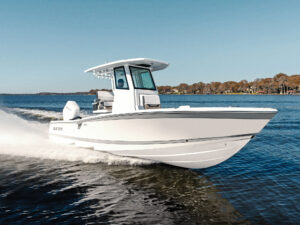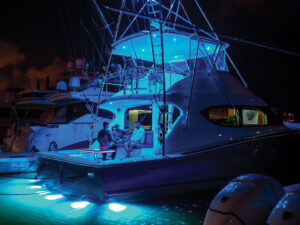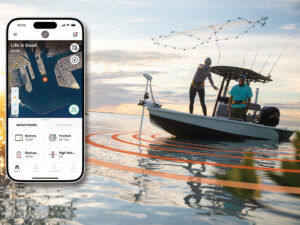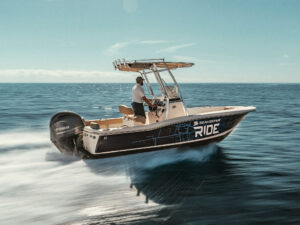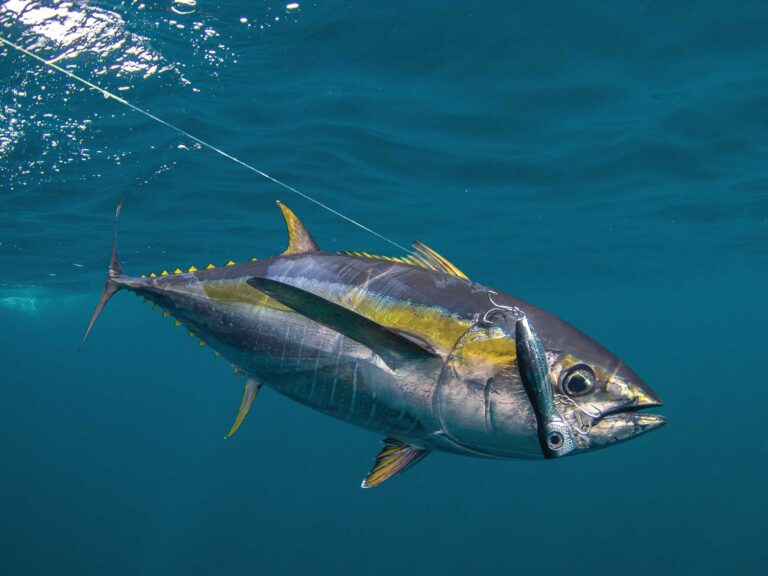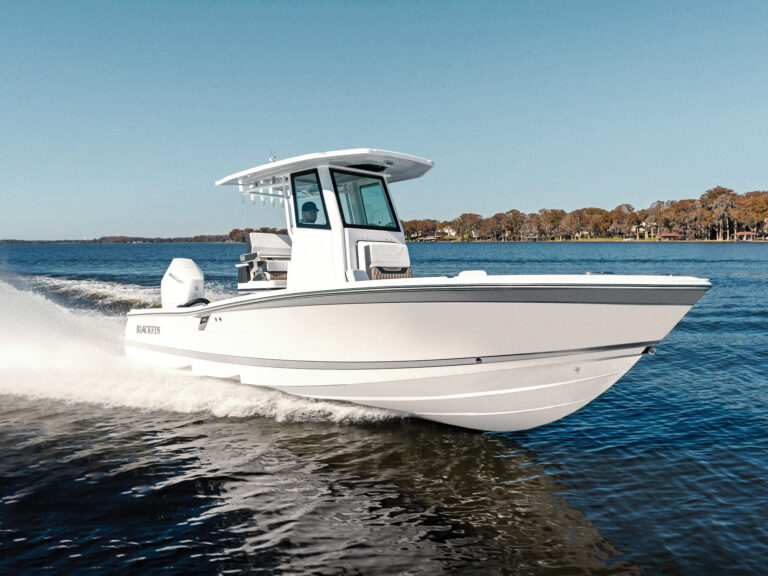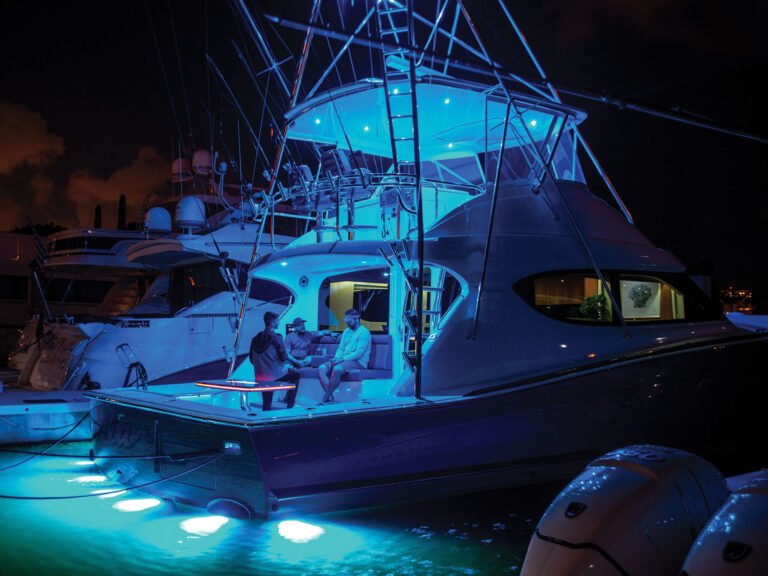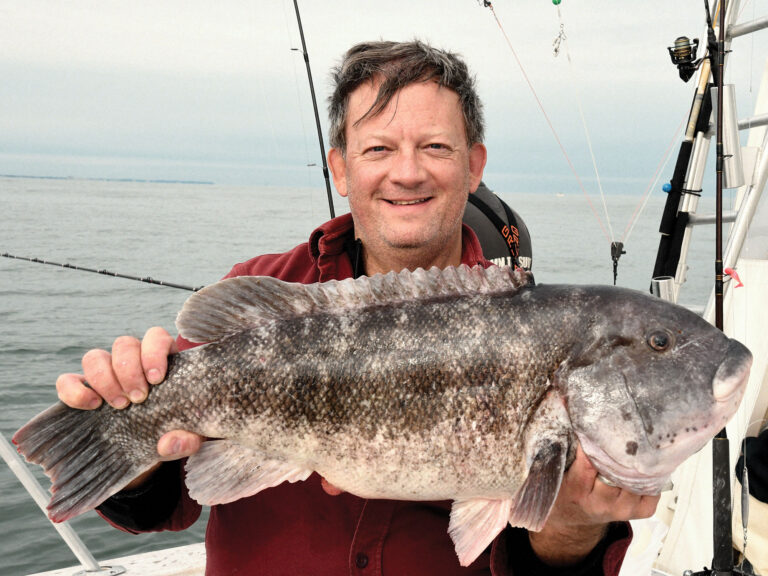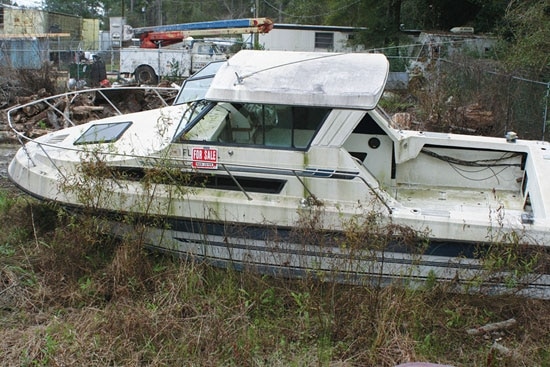
Boat fever hit me harder than a jack crevalle slamming a mullet. I had just been assigned to Pensacola Naval Air Station and those emerald-green Florida Gulf waters beckoned. I had to get out there. But buying a new boat was out of the question at my pay grade, so I turned to the next best thingI started looking at used boats, or “pre-owned” as they’re now called.
Turns out, my particular cure had been traded in to a dealer: a 17-foot Triton tri-hull with a 40-horse Mariner. I signed the papers and proudly christened my acquisition Tax Refund. My wife had suggested the name Touchy Subject, but she didn’t begrudge me the fun I had with that boat. Even though it was 20-odd years ago, my first-time experience is still common today: Less-than-new is the option many anglers take to pursue their passion.
“Everyone aspires to own a brand-new boat, but factors like budget restrictions and boating experience often steer potential buyers into the pre-owned market,” explains Chris Thomas, general manager for the MarineMax Fishing Center in Houston, Texas. MarineMax is the largest U.S. boat retailer with 85 locations across the country. “On the average, 75 to 80 percent of those who first buy pre-owned step up to a new model eventually. The pre-owned route is a great way to learn the sport and we’re in the business to grow boating customers.”
Get Real
So where do you begin? Before you bolt off to the marina with a wad of cash burning a hole in your pocket, take a reality checkyour credit rating will thank you. Crunch the household budget numbers to determine how much you can actually spend. Consider insurance, fuel, oil and routine service costs, then try to factor in some unexpected repairs.
A marine survey or appraisal can uncover potential problems before the sale and is money well spent.
Storage for that rig can also be an additional drain on the wallet. Dry storage is priced by boat length, with added charges for taller profiles or wider beams. In-water storage can run into hundreds of dollars per month depending on the size of the boat and where you’re located. If the boat is trailerable, make sure it meets home-owners’ association covenants, or you’ll have to find another place to keep it. And don’t forget about tow vehicles. A crossover SUV is no match for a fully loaded 30-footer, and the need to buy a $50,000 pickup takes the shine off that $10,000 “bargain” you just brought home.
Purchase Order
So now you’ve got the money figured out. You’re still not ready for “Let’s Make a Deal.” Have you settled on a style of boat? What type of fishing will you be doing most of the time? If the float plan calls for hardcore buddy trips, then a center console is the way to go. Factor in the family unit and you’ll be thankful for that cuddy cabin and shade. Narrow your choices beforehand to maintain focus.
Now comes the window shopping, or, more accurately, the pre-screening, as in “computer screen.” The Internet is an excellent source of pre-owned boat information (see “Cyber Lot” at right for a list of websites). But be careful. The software programs that automatically calculate dollar values based on included features can be very misleading.
“The prices that boats are really selling for is the magical question,” Thomas explains. “Many found online are overinflated because features like power tilt and trim and live wells boost the formula price when in actuality, many of those features are standard on today’s models. Buyers want to sell at retail prices and buy again at wholesale, but the real dollar amounts typically shake out at ten to 12 percent less than the asking price.
“Boat dealerships are becoming more like the automotive industry,” Thomas says. “Our profit margin is less on new boats so we can establish client relationships and gain service business. We make up the difference on pre-owned. For example, if I allow $10,000 on a trade-in, that boat will actually be worth five grand and
I’ll take five grand off the new-boat profit. I’ll then sell that trade-in to someone else for $7,995.”
Understanding the Seller
So where can you get the most boat for the money: from a dealer or a private seller? Better bargains are possible with individuals anxious to sell, and they often throw in extras like electronics and safety gear. But the buyer assumes all of the risks with this transaction. There is little recourse for a deal gone bad or when a major problem pops up, other than the courts. Individual sales are often trouble-free, but it’s smart to be aware of the pitfalls going in.
Pre-owned boats at a dealership may cost more, but there are advantages to going this route. Dealers can pass along the tax-difference savings between trade-ins. They know the legal nuances and can make sure the boat title and registration are properly recorded. Warranties are negotiable and extended plans are generally limited to five or six years depending on the state.De
alers want to earn your business and eventually sell you a brand-new rig when it’s time to upgrade, so they will try to make you happy.
They can also steer you toward wholesalers, who buy boats too old for dealers to keep in regular inventory. A wholesaler may be a good choice if you’re searching for a particular model or cash is tight.
Buying a pre-owned boat doesn’t have to be a hassle. Do your homework and take your time to find one that meets your expectations, both financially and fishably.
And take it from me, you may find it easier to spend more time on the boat if you let your wife name it.**
Selling Your Boat?
Follow these five tips to unload your old rig fast.
Curb Appeal: Before listing, make sure everything is working properly. Buff the gelcoat, touch up scratches, wash and wax. Appearance sells!
Package Deal: Turn-key rigs move faster than bare hulls or those with open holes in the console. You’ll want new electronics for the replacement boat, anyway.
It Pays to Advertise: Internet forums sell fiberglass, but don’t overlook newspaper classifieds, marina flyers and the ol’ sign on the windshield. The ideal buyer is an out-of-towner who’s been searching for months for a rig just like yours.
Splash Down: Most serious buyers want a sea trial before closing. Ask for a refundable deposit beforehand to discourage joy-riders.
Green, Please: Accept cash or a certified cashier’s check as payment. In return, provide the buyer with all the applicable manuals and an itemized receipt with hull and equipment serial numbers. Keep a copy for your records.

